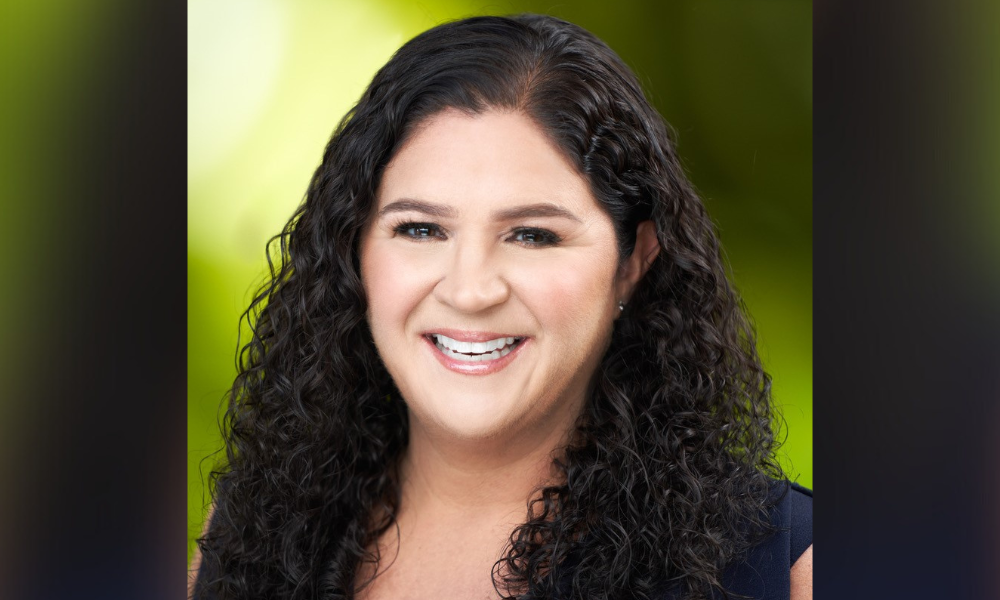There are similarities, broker says

How’s this for a career transition: Teena Broumand (pictured) spent 15 years in the medical device industry before becoming a mortgage broker.
“I invented products,” the California-based broker said during an interview with Mortgage Professional America. “I am an inventor with a US patent for a urinary catheter.”
But around seven years ago, the company she worked for was purchased by multinational corporation Johnson & Johnson with plans to move the function to Minneapolis. Based in sunny California, she and her husband weren’t keen on the idea of such a move.
“It’s cold and harsh in the wintertime,” she said of Minneapolis. “I needed to regroup.”
California dreaming of a new career
As she pondered her next step, she thought of two cousins in California who led very successful careers as mortgage brokers. She reached out to one of them about possibly joining the brokerage.
Learn how to become a mortgage broker in California in this article.
“My cousin said ‘get a license and start calling people,’” she recalled. “‘It’s as easy as that.’” Of course, Broumand said, she’d later learn the works entails so much more. Her cousin added: “‘If you figured out how to make a urinary catheter, surely you can do mortgages.’”
She then contemplated on that point, Broumand noted: “I do find there are a lot of similarities actually.” Wait for it: “My job in the medical devices field was to gather information from clients that were either happy with products available to them or unhappy with products made available to them,” she said. “It’s about solving problems. It was pretty similar once I got to asking questions, probing for opportunities and solving problems. It was pretty similar once I got over the nuts and bolts of mortgage.”
Entering the field just before the Great Recession
She entered the field in 2006, just before the emergence of the Great Recession. Yet it was having young children at home that prevented her from going all in – which, in retrospect, shielded her from the harshest effects of the mortgage crisis.
“The first few years, my children were still young and under 16, so I did not do it full time,” she said. “I would do a loan for family members, but not go out marketing myself as fully doing the job. It took me probably two or three years.”
Broumand noted she didn’t get into the career driven by a profit motive, although it didn’t go unnoticed how well her cousins were doing. Instead, she described a “servant’s heart” that has guided her second career where she is able to help folks achieve the dream of homeownership.
“That’s certainly not my driver,” she said. “To be totally honest with you, I don’t love money. I started making a network around myself of brokers that are true servant hearts. That’s who I am as a person. I choose to serve in whatever it is that I’m doing, whether it’s developing urinary products or originating a mortgage, or giving advice.”
She especially has a soft spot in her heart for military veterans, and is active in Vetted VA, a group that provides guidance to vets seeking to become homeowners.
“My dad was a veteran himself, and he died young from Agent Orange,” she said, referring to the herbicide mixture used by the US military during the Vietnam War. “He never ended up owning a house,” she said of her father, who was divorced from her mother yet retained full entitlement benefits. “My dad wasted years being a renter, and it was needless. He didn’t have to do that. That’s why I’m a part of Vetted VA.”
She recalled one particularly memorable transaction that illustrated that ideal. A 71-year-old military veteran who had experienced homelessness sought to buy a home despite having no established credit.
“He’s a grouchy, bearded Vietnam vet,” she said. “He was renting a room for a year and had no credit because he paid cash for everything.”
She reached out to Sam Parker, founder/CEO of My Credit Guy, a credit restoration agency to help develop a strategy to build credit for the borrower. “He followed the plan by making small purchases and paying it off, making small purchases again and not paying them all the way,” she said.
Before long, he achieved a credit score of 745, Broumand said. And then, the worst news: A cancer diagnosis prompted the aging veteran to suspend his plans to buy a home. But some eight months later he received medical clearance after his cancer was mitigated, Broumand said. He got pre-approved with multiple options and closed on his first home – a three-bedroom, two-bathroom home in Victorville, Calif., on the outskirts of Los Angeles.
“We still stay in touch,” she noted of her client. Broumand said forging those kinds of relationships makes it all worthwhile. “These relationships you develop with some people by helping ease their burden. Those are the reasons why I enjoy doing this job.”
Want to make your inbox flourish with mortgage-focused news content? Get exclusive interviews, breaking news, industry events in your inbox, and always be the first to know by subscribing to our FREE daily newsletter.



